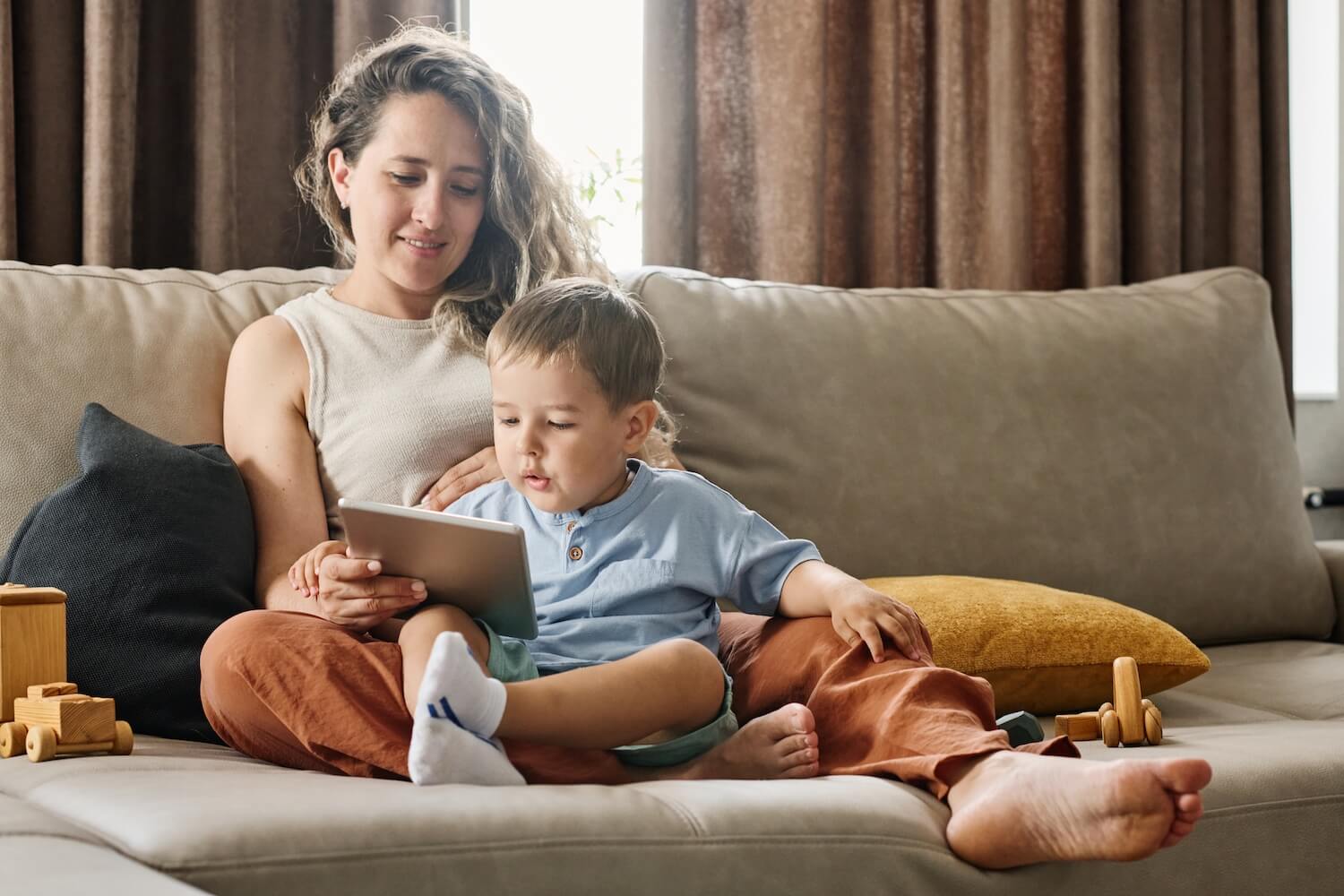
How Much Screen Time is Too Much for Young Children?
For most of us, screens are a big part of our lives. Whether we are spotting New Mexico filming sites in Stranger Things, scrolling Instagram, or puzzling over today’s Connections, screens are a big part of how we connect with each other, learn about the world, and enjoy cat videos.
But screens can also pull us away from in-person socializing, depress us with doom scrolling, and fill time that we might otherwise spend on things we love. That’s even more important for young children, whose brains are developing fast and who learn best by exploring the world, playing, and interacting with other people. Too much time on screens can mean they have fewer opportunities for those important real-world experiences.
So what’s a family to do? Dr. Anna Duran, a pediatrician at UNM Children’s Hospital who was born and raised in New Mexico, is here to guide us through this tough topic.
How Much Screen time?
First, the basics: The American Academy of Pediatrics generally recommends that children under 18 months should not use any screens. But don’t worry, grandparents, there’s an important exception! Video chats with family, or even with home visitors, is OK for young children. When children are 18-24 months old, families can start introducing other screen time if they want to. The key here is to choose high-quality content (more on that next), and to look at it together. Between ages 2 and 5, limit screen time to one hour per day of high-quality screen time.
Choose Quality Content
But how can you know whether content is high quality? Dr. Duran points to a classic: “I love Sesame Street. … It’s not just teaching you your alphabet and your numbers, but it’s also teaching you about social interactions and your manners, and how to be around friends and what to do when you’re sad,” she said. The American Academy of Pediatrics loves it, too. They specifically call out Sesame Street and other content from PBS as educational and backed by research. This is important, because a lot of apps and videos claim to be educational, but really aren’t. Dr. Duran recommends screen time that is interactive in some way (either by touchscreen interactions or by asking children questions, Dora-style) rather than content that children stare at passively.
Enjoy Screens Together
Dr. Duran said there is also a big difference between young children on screens alone and screen time that is social and enjoyed together. Does that mean you have to get really into Wild Kratts? (No, but you might want to). Time spent cuddled up with your child showing them your favorite Disney movie or playing a game together on a screen can be high-quality time. This is especially true if those activities relax you and put you in the mood to delight in your child and chat with them about what you’re experiencing together. You can even watch The Early Show with Alax together!
Keep Your Ears Open
If your child is on a screen by themselves, consider skipping the headphones and keeping your ears open for what they are watching or playing. Dr. Duran said touch screens make it very easy for children to open videos or apps that they shouldn’t, and close listening ensures you can quickly steer them away from content that is inappropriate or just doesn’t have much learning value. Does this mean you might have to listen to Elmo while you’re cleaning instead of your favorite true crime podcast? It does, but you can steer your child to episodes with cool guest stars. Keeping your eyes and ears on what children are doing on screens is also important for keeping them safe from predators, identity thieves, or other bad people on the internet. Dr. Duran said young children can wander easily into unsafe online spaces if adults aren’t paying close attention.
Stepping Down Screens
Dr. Duran advises that the best way to limit screen time in young children is to keep from building screen time habits. “I get it,” she said. “You have to get dinner ready, and you've got a two-year-old, and they want all of your attention. So the easiest thing and the quickest thing is ‘Here, watch this while I do that.’ We've all done it, and we all get it. I think part of it is not making it a habit.” Because, she said, if your child gets your tablet whenever you’re making dinner, they form a habit that is harder to break later. And that’s when children start having meltdowns and tantrums when their screens are taken away. If you’ve already created a behavior or habit that you’d like to change, Dr. Duran suggests changing it gradually. If your child currently has several hours of screen time each day, don’t suddenly cut it to nothing. Big changes to their routines and expectations are hard on young children. Step the time down slowly by setting new rules (e.g., we are removing all screens from meal and snack times) and then stick firmly to those rules, even if your child gets upset. Over time, they’ll get used to the new expectations.
Replace Screens with Play
Time to yourself is precious when you’re raising a young child. And screens aren’t the only way to get that time. While young children want a lot of your attention, they can also learn how to play by themselves—especially if you give them lots of chances to practice. Offer your child coloring pages, simple toys, durable books they can explore independently, or maybe just hand them a spatula. At first, they won’t be entertained for long and they’ll need a lot of your attention. But raising children is about playing the long game. Over time, they’ll become kids who know how to entertain themselves without a screen, and then they’ll be better off than most adults!

Want One-on-One Help with Your Baby or Toddler?
Enroll in home visiting for FREE and ask a professional! You can learn more here, and search for a program in your area here. If you’d rather have some help from a person, call 1-800-691-9067 to speak to a knowledgeable New Mexican who can help you find a program in your community.

